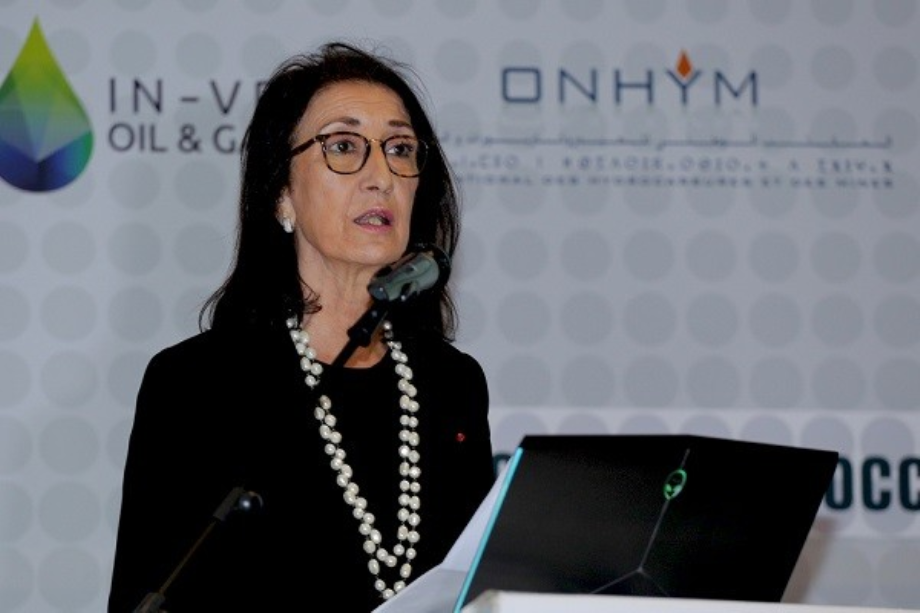ENERGY
Morocco has considerable assets to make a success of the energy transition

Morocco has considerable assets at its disposal to make a success of the energy transition, Amina Benkhadra, Director General of the Office National des Hydrocarbures et des Mines (ONHYM), said on Wednesday in Marrakech.
"Morocco has considerable assets at its disposal to achieve this transition, in particular through the implementation of the solar and wind energy plans launched by His Majesty King Mohammed VI, with the aim of achieving 52% of installed electricity capacity from renewable energies by 2030", noted Ms Benkhadra, speaking at the 3rd Moroccan Oil and Gas Summit (24-26 October).
"Morocco is constantly consolidating its position as a regional energy leader, by strengthening partnerships and embracing innovation, while prioritising a sustainable energy mix and making a substantial contribution to the global energy transition," she added.
In this context, Ms Benkhadra emphasised the importance for Morocco of adopting a balanced approach that takes into account both its hydrocarbon resources and its move towards energy transition, stressing the need to strengthen current oil and gas resources and infrastructures, and to invest in sustainable energy projects and initiatives.
She also stressed the importance of exploiting the Kingdom's potential in the oil and gas industry and in the energy sector in a responsible manner, while ensuring a balance between economic growth, energy security and environmental sustainability, guaranteeing a smooth transition to a sustainable future.
She pointed out that in November 2022, His Majesty King Mohammed VI gave His High Royal Instructions to the government to formulate a practical and attractive "Morocco Offer" covering the entire value chain of the green hydrogen industry in Morocco, and including not only the regulatory and institutional framework, but also a plan for the necessary infrastructure.
"The government is working tirelessly to implement this Moroccan offer in the green hydrogen sector by 2024, with the aim of benefiting from the Kingdom's expertise, interacting with investors' projects in this promising sector, and raising Morocco to the rank of countries qualified in this field at world level", she said.
Ms Benkhadra also pointed out that ONHYM plays an important role in this respect, by attracting investment through cooperation and promoting partnerships with foreign players in this field, stressing that the Office aims to contribute to Morocco's energy self-sufficiency and security, and to reduce dependence on imports.
On another note, she pointed out that emerging and developing countries, in the context of the multiple crises facing the world, in particular the unprecedented energy crisis, are playing a crucial role in the global transition to a more efficient, low-carbon system, which fits perfectly with the Sustainable Development Goals (SDGs).
She also emphasised the importance of developing access to natural gas by facilitating the financing of infrastructure and developing mutually beneficial partnerships, believing that the development of investment in this field represents a major challenge.
With regard to the multiple importance of natural gas, which is at the heart of Morocco's energy strategy, Ms Benkhadra emphasised that this resource makes it possible to accelerate the spread of the use of renewable energies, to manage power cuts and achieve energy efficiency, whether linked to consumption or to the management of network flexibility, and to improve industrial competitiveness, while helping to strengthen regional cooperation through the use of common infrastructures.
Organised by the Office National des Hydrocarbures et des Mines (ONHYM), in partnership with "IN-VR", this meeting is an opportunity to discuss the challenges of oil and gas exploration in Morocco and the geological potential available, while focusing on energy issues in Africa.
The summit brings together some 180 participants representing international oil companies, national energy companies and national companies responsible for hydrocarbons in the African countries that will be crossed by the Niger-Morocco gas pipeline project, as well as service companies, legal advisers, banking sector executives, experts and executives from various countries around the world.
On the fringes of the Summit, the committee in charge of the Nigeria-Morocco gas pipeline project held its meetings, in the presence of representatives of the countries through which the pipeline will pass, the Commissioner in charge of infrastructures, energy and digitalisation, and the Director of Energy and Mines of the Economic Community of West African States (CEDEAO).
-

 ANALYSIS1 an ago
ANALYSIS1 an agoThe 3 African countries richest in natural resources
-

 NEWS11 month ago
NEWS11 month agoTop 10 des pays africains producteur de l’or : Mali 2-eme, Burkina Faso 3-eme
-

 FOCUS ONA1 an ago
FOCUS ONA1 an agoThe 10 largest oil refineries in Africa
-

 FOCUS ONA11 month ago
FOCUS ONA11 month agoTop 10 oil producers in Africa in 2023
-

 NEWS2 ans ago
NEWS2 ans agoRanking of oil producers: Here are the Top 10 African countries.
-

 NEWS8 month ago
NEWS8 month agoAfrica's 10 largest natural gas production fields.
-

 NEWS2 ans ago
NEWS2 ans agoTop 20 oil producing countries in 2022
-

 NEWS10 month ago
NEWS10 month agoIvory Coast: Eni to deploy a cylindrical FPSO and a converted FSO on the Baleine oil field













